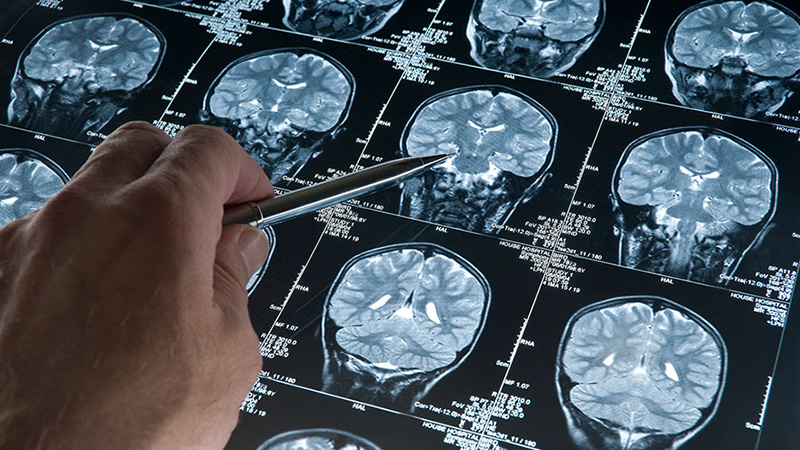Removing Ovaries Before Menopause Associated With Reduced Brain White Matter Integrity
Images

Women who have their ovaries removed before menopause, particularly before the age of 40, have reduced white matter integrity in multiple regions of the brain later in life. White matter refers to the nerve fibers that connect neurons in different areas of the brain.
The findings appear online in Alzheimer’s & Dementia: The Journal of the Alzheimer’s Association.
“We know that having both ovaries removed before natural menopause causes abrupt endocrine dysfunction, which increases the risk of cognitive impairment and dementia,” said Michelle Mielke, PhD, professor and chair of epidemiology and prevention at Wake Forest University School of Medicine. “But few neuroimaging studies have been conducted to better understand the underlying mechanisms.”
For the study, the research team examined data from the Mayo Clinic Study of Aging to identify women over the age of 50 with available diffusion tensor imaging, a magnetic resonance imaging (MRI) technique that measures white matter in the brain. The cohort was comprised of:
- 22 participants who had premenopausal bilateral oophorectomy (PBO) before age 40
- 43 participants who had PBO between the ages of 40 and 45
- 39 participants who had PBO between the ages of 46 and 49
- 907 participants who did not have PBO before the age of 50.
“Females who had premenopausal bilateral oophorectomy before the age of 40 had significantly reduced white matter integrity in multiple regions of the brain,” said Mielke, the study’s corresponding author. “There were also trends in some brain regions such that women who had PBO between the ages of 40-44 or 45-49 years also had reduced white matter integrity, but many of these results were not statistically significant.”
Mielke said that 80% of participants who had their ovaries removed also had a history of estrogen replacement therapy. Therefore, the study was not able to determine whether the use of estrogen replacement therapy after PBO mitigated the effects of PBO on white matter integrity. She noted that the ovaries secrete hormones both before (primarily estrogen, progesterone and testosterone) and after menopause (primarily testosterone and androstenedione).
“Having both ovaries removed results in an abrupt decrease in both estrogen and testosterone in women,” Mielke said. “Therefore, one possible explanation for our results is the loss of both estrogen and testosterone.”
Mielke said additional research is needed to further understand how white matter changes are associated with cognitive impairment.
“While these findings are important for women to consider before having premenopausal bilateral oophorectomy for non-cancerous conditions, we need a larger and more diverse cohort of women to validate these results.”